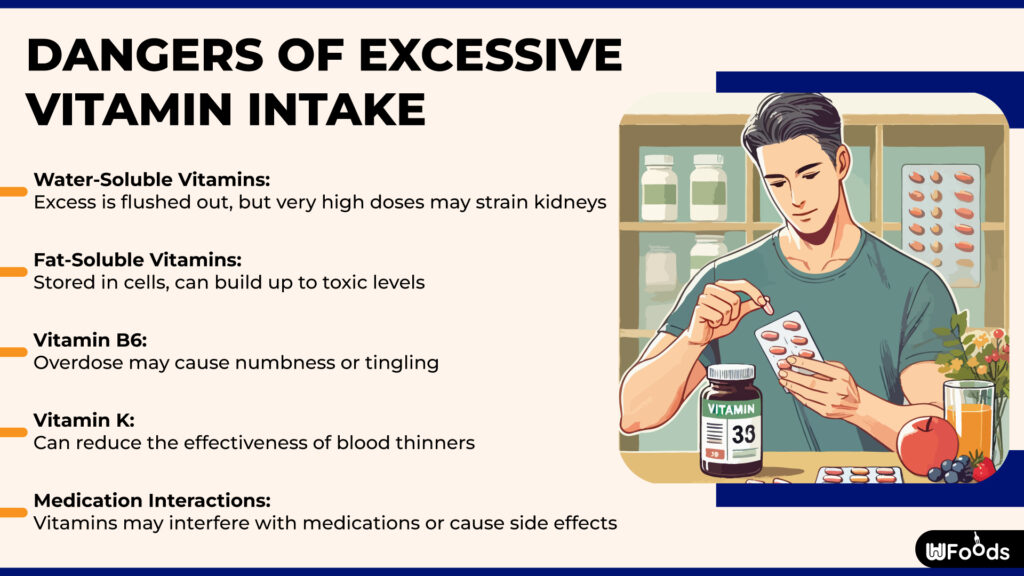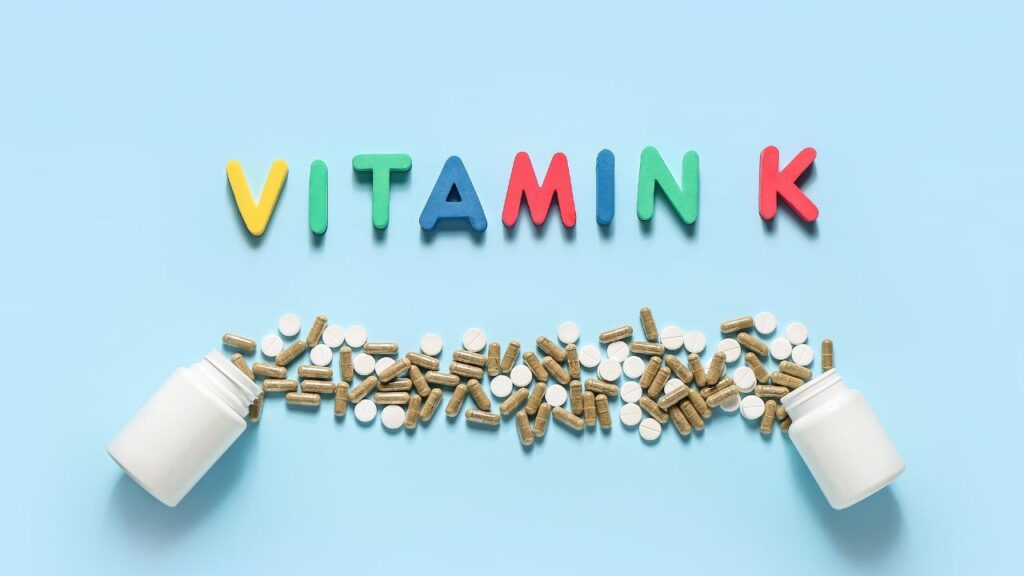Are you unknowingly sabotaging your health with bad supplement combinations? Many people assume that combining vitamins, minerals, and herbal remedies is always safe. But the truth is, there are some supplement combos you should never take together. If you do, chances are you are risking your health.
Don’t worry, though—I’ve got you covered! In this guide, I’ll break down the worst supplement combos, why they don’t work, and how you can stay safe. Stay tuned!
Supplement Combos You Should Never Take Together

Supplements can be great, but mixing the wrong ones can cause big problems. Some combos cancel each other out, while others could even be dangerous. Let’s talk about which supplements don’t mix well and why:
John’s Wort and Serotonergic Supplements

Getting straight to the point: St. John’s Wort doesn’t play well with serotonin-boosting supplements like 5-HTP. The reason? Well, both can increase serotonin levels in your brain. While serotonin is great for feeling good, too much can lead to serotonin syndrome, a potentially life-threatening condition.
If you’re already on antidepressant medications or taking a serotonin-supporting supplement, adding St. John’s Wort to the mix raises the risk of dangerous drug interactions. Even worse, this herb can make some medications, like birth control or blood thinners, less effective. It’s not just about mood; harmful interactions can lead to serious health problems.
The National Institutes of Health has also warned that supplements claiming to improve serotonin can have severe side effects when used together. Therefore, always ask a healthcare provider before trying St. John’s Wort or other herbs. Mixing the wrong supplements isn’t worth risking undesirable health effects.
Zinc and Calcium
Taking calcium and zinc supplements together might sound good, but they don’t work well. Both compete in your gut, making it harder for your body to absorb them. This can reduce zinc absorption, meaning your zinc levels drop. This can affect your immune system and healing. Plus, it also means you are not treating iron deficiency.
When zinc competes with calcium supplements, it can hinder proper absorption of both. If you take magnesium and zinc supplements or zinc and iron supplements, the same problem can happen. The key is timing: taking all the supplements at once is a bad idea. Most experts recommend taking zinc and calcium supplements at least two hours apart.
For people with bone issues, getting enough nutrients is critical. But taking high-dose supplements without spacing them out can hurt more than help. Talk to your healthcare provider to make sure you’re balancing supplements for bone health.
Vitamin B6 and Levodopa
B vitamins are great for mood and energy levels, but if you’re taking Levodopa for Parkinson’s, adverse effects can occur. How? Vitamin B6 breaks down Levodopa in your body too quickly, reducing its effectiveness. This means your symptoms might worsen, despite taking your meds.
The interactions between Vitamin B6 and Levodopa are a classic example of why it’s important to consult a healthcare professional before adding new dietary supplements. This combo isn’t just unhelpful; it can cause severe side effects by blocking the medication you need.
To keep things balanced, don’t take vitamin supplements randomly. I also suggest focusing on a natural diet instead, like green tea and grains for beneficial nutrients, like folic acid. But if it’s really necessary, go for new supplement options recommended by your healthcare provider. Remember: you are less likely to get a good result if you randomly or accidentally pair supplements.
Vitamin K and Blood-Thinning Medications

If you’re on blood thinning medication, be careful with vitamin K. This vitamin helps with clotting, which directly counters the effects of blood thinners like warfarin. Combining the two can lead to undesirable effects, such as blood clots or uncontrolled bleeding.
Even potentially blood-thinning supplements, like ginkgo biloba or garlic, can add to the increased risk of harmful interactions. Your dose might need adjusting if you’re taking these.
The National Center for Complementary and Integrative Health has also advised being cautious with fat-soluble vitamins like Vitamin K. I also suggest always talking to a healthcare provider if you’re unsure. Avoiding high doses of vitamins and sticking to a proper plan can reduce your risk of chronic health conditions caused by bad supplement combinations.
Iron and Zinc
Zinc iron supplements sound like a smart combo, but they don’t mix well. These two supplements compete for absorption, meaning your body can’t fully benefit from either. Taking them together can make it hard to correct iron deficiency or maintain healthy zinc levels.
Adding calcium and iron supplements to the mix complicates things further. These all need stomach acid to break down properly, and taking them together dilutes their effectiveness. Instead, focus on taking them on an empty stomach, but at different times of day.
Goldenseal and Blood-Clotting Medications

Goldenseal is a popular herbal supplement, but it’s not safe to mix with blood-thinning medication. It interacts with your body’s ability to clot blood, increasing the increased risk of serious bleeding. Even when combined with both ginkgo biloba and other herbs, the results can be unpredictable.
Such interactions are dangerous, especially for people on prescription medications. The National Institutes of Health warns about using herbs without consulting a healthcare professional.
Here’s what I suggest: Stick to advice from your healthcare provider before trying complementary and integrative health options.
Vitamin C and Antacids That Contain Aluminum
I’ll make this quick: Vitamin C and antacids containing aluminum don’t work well together. The acid from Vitamin C increases aluminum absorption, which can cause undesired health effects, especially for your kidneys. If you’re taking both, your digestive health dietitian might suggest spacing them out.
These supplement or drug interactions are particularly tricky for people with chronic health conditions. High aluminum levels can lead to toxic levels, which can harm your body. Stick to water when taking other supplements to avoid problems.
A Dietitian can guide you if you’re adding a new supplement to your routine. Lastly, I want to say that avoid mixing incompatible dietary supplements and stay on top of your nutrient or health needs.
Symptoms of Vitamin Overdose or Bad Combinations

Your body shows warning signs when you take too many vitamins or mix the wrong ones. These symptoms can range from mild annoyances to serious health risks, like skin peeling. Let’s talk about the signs:
Diarrhea or Constipation
One of the most common undesirable health effects of taking high doses of certain supplements is digestive issues like diarrhea or constipation. For example, fat-soluble vitamins like A, D, E, and K stick around in your body longer than water-soluble vitamins like C and B. This buildup can upset your system.
Too much magnesium can cause diarrhea, while iron can lead to constipation. If you’re dealing with chronic health conditions, these side effects might be worse. Taking supplements in amounts over the tolerable upper intake level can result in adverse effects that your body struggles to handle.
Skin Rashes or Peeling

Your skin often shows the first signs of trouble when you’re taking the wrong supplements. Some vitamins, especially in toxic levels, can cause rashes or peeling. Potentially blood thinning supplements, like fish oil or vitamin E, can also make bruising easier, which might appear as blotchy skin.
Nerve Issues (Tingling, Numbness)
Overdoing certain B vitamins, like B6, can cause nerve problems. Tingling or numbness in your hands and feet might be a sign of neurological problems from taking high doses. These symptoms are often linked to long-term supplement misuse.
Joint or Bone Pain

Vitamin toxicity can also show up as pain in your joints or bones. Overdoing fat-soluble vitamins like D can lead to calcium buildup, causing stiffness or aches. People with chronic health conditions should be particularly cautious.
Increased Thirst and Urination
When your body has too many vitamins or minerals, it tries to flush them out. This can cause excessive thirst and frequent urination. Water soluble vitamins, like C, are typically excreted easily, but overloading on them can still strain your kidneys.
Lastly, I want you to be mindful of potentially life-threatening conditions that could arise from poor supplement choices.
How to Ensure Safe Supplement Use

Taking supplements can be beneficial, but only if you do it right. Here are proven tips to help you stay safe:
- Always consult a healthcare provider before starting any supplement, especially if you are on prescription medications.
- Stick to the recommended doses and avoid high doses unless prescribed.
- Take supplements to fill dietary gaps, not replace a balanced diet.
- Space out supplements that compete for absorption, like iron and calcium.
- Choose high-quality dietary supplements that meet your nutrient or health needs.
- Be cautious of supplements claiming quick fixes or miraculous results.
That’s all.
Conclusion
Taking supplements is great for your health, but only when done right. By avoiding dangerous combinations and planning your routine wisely, you can stay safe and healthy. For example, never mix St. John’s Wort and serotonergic supplements to avoid serotonin syndrome. Similarly, space out calcium and zinc supplements to ensure proper absorption.
In this guide, I also suggested avoiding combining vitamin K with blood-thinning medications to prevent dangerous interactions. And remember: always consult a reputable healthcare provider for supplement combinations.
















